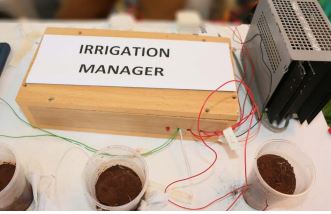The Jomo Kenyatta University of Agriculture and Technology has launched an automated irrigation system that saves more than 25 per cent of water used by using soil sensors to ensure farmers irrigate without fear of using more water than required by crops as this has often led to increase in crop diseases such as root decay due to over watering.
According to a research by the University of Missouri, drip irrigation boosts yields in crops such as maize and soybean production by more than 50 per cent.
The irrigation system is designed to water crops depending on the moisture content of the soil. The technology works when the content of soil in the water falls to a level that is below what is required for the crop’s survival and healthy growth.
The watering frequency can be adjusted to suit different crops being managed in the farm as per the requirements. This system checks water wastage because Irrigation manager system controls the required amount of water required by the crops.
Related
Why you need drip irrigation for higher profits
Drip kit saves over 70 per cent water in kitchen garden irrigation
Coast farmers cut irrigation costs with water storing crystals
JKUAT's automated irrigation manager
“The saved water can be used in another round or on similar irrigation field,” said Wycliffe Obwoge, an agronomist.
At the same time the method allows for application of liquid fertilizers and other farm chemicals like pesticides in a more precise and economic way, he says.
This reduces wastage of pesticides, water, fertilizer and other resources in a greenhouse or open field.
The system is labor cost effective and saves on energy since it controls the water pump only when water content of the crop goes down with the help of sensors which manage water content.
According to the ministry of agriculture, the country’s irrigation-based farming is still limited. Of the total land area under agriculture, 2.9m ha, irrigation accounts for only four per cent but contributes to three per cent of the GDP and provides 18 per cent of the value of all agricultural produce, demonstrating it’s potential in increasing agricultural production and productivity.
Irrigated agriculture is carried out mainly in irrigation schemes and in large scale irrigation of crops such as rice and coffee. Individual farmers have developed their own systems of irrigation especially for export crops such as coffee and horticulture.

















Comments powered by CComment